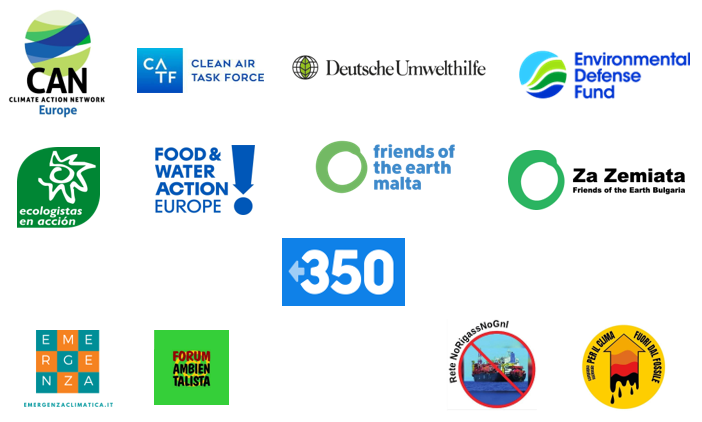To:
Executive Vice President Maros Sefcovic
Climate Commissioner Wopke Hoekstra
Directorate-General for Climate Action
Climate Commissioner must support ambitious EU methane regulation
As civil society organisations active in the field of the reduction of methane emissions from fossil fuel operations, we are writing to urgently request your stronger support and involvement in the ongoing trilogue negotiations for the Methane Regulation to cut methane emissions in the energy sector (COM/2021/805 final).
The proposal is currently being negotiated as an energy file but has immense climate impacts that should raise your concerns. Methane is one of the main components of fossil gas and is responsible for around 30% of global warming experienced today. It is also 80 times more harmful than carbon dioxide over a 20-year period. Reducing methane emissions associated with human activity by 50% over the next 30 years would mitigate against global temperature change by 0.2°C. The proposal is hence an essential part of the Green Deal and the Fit for 55 package. With only two months to go until COP28, the EU must sit at the negotiating table by showing true leadership in the fight against GHG emissions, in line with the commitment made through the Global Methane Pledge and the Paris Agreement.
The undersigned organisations are extremely concerned about the Council’s lack of ambition on the text, and the impact it will have on the final agreement. EU countries have introduced loopholes to dilute the rules concerning Monitoring Reporting and Verification (MRV), Leak Detection and Repair (LDAR) and Limits of Routine Venting and Flaring (LRVF). But most importantly, upstream methane emissions coming from imported energy sources are not effectively addressed. Only the EP’s proposal introduces amendments that extend the mitigation measures to imports and create a strong framework. We therefore call on you to support the following key priorities for an effective Methane Regulation:
- A binding EU wide methane emission reduction target for 2030 (Art. 1a). Defining a binding target for 2030 is in line with EU’s Climate Laws (requiring net GHG reductions by at least 55% by 2030 compared to 1990 levels), and also with the IEA’s latest Net Zero report, calling for a 75% methane emissions reduction by 2030 to limit global warming to 1.5°C. The EU has to take its role as a global leader in the fight against climate change and define a methane emission reduction.
- Mitigation measures (leak detection and repair, limits on routine venting and flaring and measurement, reporting and verification) applying to gas imports from 2026 onwards (Art. 27). More than 90% of the gas consumed in the EU is imported, so to be serious about reducing methane emissions, the EU needs to extend binding mitigation measures to fossil imports. It is an undeniably critical step to reduce emissions while strengthening energy security: Analysis using the Global Gas Model showed that the security of supply would not be endangered if these types of measures, hardly affecting the total EU supply mix, were applied.
- An ambitious upstream performance standard for methane emission intensity in fossil imports (Art. 13). Combining the extension of mitigation measures with a methane intensity standard at 2% would provide clarity and allow for easier verification with respect to these provisions. Without requiring mitigation of emissions from energy imports, either through equivalent regulations or through a performance standard, we are cutting off the possibility of implementing effective actions to cut methane emissions from imports before 2030.
- Including the petrochemical sector (Art.1) – petrochemicals account for 14% and 8% of the total primary demand for oil and fossil gas respectively, and will become the world’s biggest driver of oil In line with the European Parliament’s position, it is vital to extend the scope of the regulation to include petrochemicals. This would be coherent with EU international negotiations on a global plastics treaty as it will contribute to reducing greenhouse gas emissions related to upstream emissions of plastic.
The Commission plays an important role in improving the final text, which would only be strong enough if it included the above mentioned measures. We therefore call on you to support your colleagues from DG ENER in making the Methane Regulation a crucial tool to reduce GHG emissions and bring the EU closer to reaching its 2030 and 2050 climate targets. This is even more important as methane emissions have continued to rise in 2022 and it would take as little as 3% of fossil fuel industries’ profits to avoid most current methane emissions.
We would welcome the opportunity to further discuss these issues with you in a meeting.
Yours sincerely,

Download the letter here.



